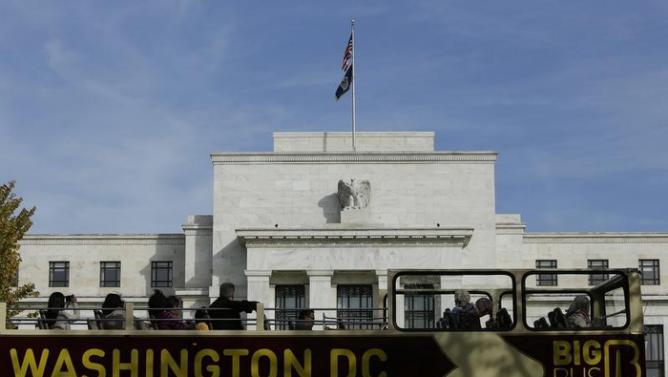
WASHINGTON (TIP): The US Federal Reserve raised, December 17, interest rates by 0.25 percentage points – its first increase since 2006. For almost a decade money has been cheap – some would argue too cheap. But today’s rise in US interest rates could be the beginning of a new era, one in which the cost of borrowing rises – possibly for years.
The move takes the range of rates banks offer to lend to each other overnight – the Federal Funds rate – to between 0.25% and 0.5%.
The move is likely to cause ripples around the world, and could increase pressure on the UK to raise rates.
It could also mean higher borrowing costs for developing economies, many of which are already seeing slow growth.

There are concerns that a rise will compound that slowdown, as higher rates in the US could strengthen the dollar, the currency in which many countries and companies borrow.
‘Improvements’
The US rate rise vote was unanimous.
The US central bank also raised its projection for its economic growth next year slightly, from 2.3% to 2.4%.
That suggests the bank does not think the rate increase will damage growth. US share markets jumped in response.
The Dow Jones went from a 50-point rise to stand up 79 points, and later added to that to close up 224 points at 17,749 points, a 1.3% gain.
Why it matters for the US economy
A rate rise can be seen as a vote of confidence by the Federal Reserve in the US economy.
US unemployment has fallen to 5% – the lowest level in seven and a half years and the annual growth rate is running at a robust 2.1%.
But despite those healthy indicators, interest rates are at emergency levels. Between September 2007 and December 2008 the benchmark Federal Funds rates fell from 5.25% to between zero and 0.25% in an effort to stave off recession.
Economists argue it is high time rates started to head higher, to prevent excessive consumer borrowing and prevent bubbles emerging in the housing market and other types of assets.
Why it matters for US consumers
The effect of the first rise in interest rates on US consumers is likely to be muted. There are a few reasons for this.
A 0.25% rise is fairly modest and in the short term the cost of borrowing will not rise by much.
Also American households are less in debt than before the financial crisis. According to the New York Federal Reserve overall household debt remains 5% below its peak in 2008.
And US home owners are less sensitive to moves in interest rates as mortgage rates are usually fixed over 30 years.
Why it matters for India
The equity markets in India welcomed the rate hike. Fitch, the US rating agency, said that India will not be affected by the potential economic irregularities on account of interest rate hike by the US Federal Reserve. Instead, the favorable economic outlook of the country makes it an attractive investment destination for foreigners.
“India is not immune to potential general emerging market jitters related to the Fed lift-off, but it is better placed than many of its peers for a number of reasons,” said Thomas Rookmaaker, Director, Sovereign Ratings, Fitch Ratings.

The Indian Panorama sought the views of Chief Executives of Indian Banks in New York. P Rama Krishna, Chief Representative & Assistant General Manager of Andhra Bank in New York sent in his comment which reads as follows.
“As expected Federal Reserve increased the interest rates by 0.25%. This has not come as a surprise as the whole world is predicting the increase. This would definitely impact all the nations more particularly third world countries and developing countries and India is no exception. Of late India is the largest beneficiary of investments and capital from US in the form of FDI and FII.
With the rise in interest rates in USA, it makes US more attractive for investment and adversely affects India. It will not only cut down the flow of FDI and FII to India , countries which have aggressively invested in India may think of diverting to US.
Already we have seen correction in the value of rupee as against dollar since August 2015. Down the line this will impact India as their import bill may go up due to rise in crude oil prices.
India is one of the world progressing economies, has already undergone correction process in the stock market as well as value of Rupee.
With the development taking place in India, the amount of foreign reserves, we have people at the helm of affairs who are capable of continuing the growth story of India and making the economy investor friendly.”





95733 733507Hello Guru, what entice you to post an post. This write-up was very interesting, specially since I was looking for thoughts on this subject last Thursday. 888423